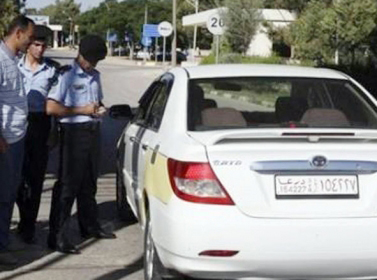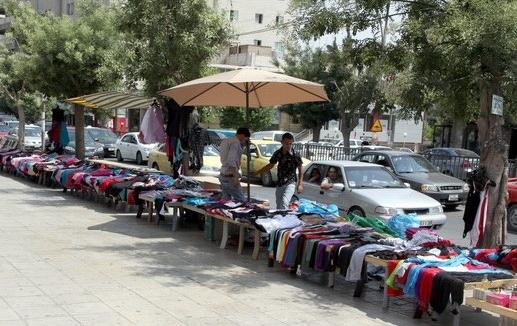
Syrian Arab Airlines: High Costs for Low Security Measure

Enab Baladi Issue # 95 – Sun, Dec. 15, 2013
Abdul-Rahman Malik – Enab Baladi
The Syrian crisis has lasted longer than people have expected. Meanwhile, hopes of a near end have faded and have been replaced by the hopes of traveling anywhere, seeking asylum or a residence permit. However, traveling is not that simple for Syrians who are left with limited choices of where they could go, whereas costs are increasing daily. Travel expenses through Syrian airports and local airlines have increased tenfold compared to three years ago, right before the crisis.
When a Syrian citizen decides to leave the country, he/she is faced with two choices: to take the risk of leaving through Damascus International Airport, where the area has been witnessing intermittent clashes; or to take the safer route to Beirut International Airport.
Despite the considerable risks of passing through the highway leading to Damascus International Airport, a large number of Syrian people, especially those who live on a small fixed income, are taking that road to save money and reduce expenses.
A year ago, clashes and skirmishes broke out in villages on both sides of the highway; since then, the clashes have continued and the road has been blocked many times for short periods. The longest period of blockage was two consecutive weeks, during which the movement of both workers and passengers at the airport came to a halt entirely.
Furthermore, risks are not limited to the road but to the inside of the airport itself as well. The airport building was hit by several mortar shells; several light injuries were reported among workers and passengers, in addition to damages to runways.
To minimize the risks, the airport’s administration proposed a day and night shift system among workers. A worker is to work for 24 hours followed by 48 hours off, and so on.
However, workers are not the only ones staying at the airport; some passengers had to spend hours in the waiting hall as fierce clashes broke out, blocking the road. Fayez, who arrived from Cairo at Damascus Airport during the day, said he had to spend the night in the waiting hall due to clashes and the absence of transportation to the capital, Damascus.
Meanwhile, “Syrian Arab Airlines” is the sole proprietor of air transport in Damascus International Airport. The company’s flights are the only available choices after the boycott by other Arab and international companies to the airport due to political and security concerns. Whereas Syrian Arab Airlines’ presence in other international airports has shrunk considerably, the company’s flights now cover 15 destinations (Beirut, Moscow, Gulf States, Amman, Tehran, Egypt, and Algeria) out of the 42 it used to cover worldwide.
As the company acknowledges a 30% increase in its prices, ticket prices are actually witnessing a rapid daily increase in the Syrian market. Even heading to nearby destinations such as Amman and Cairo costs a passenger no less than 50,000 S.P. (333$), in comparison to 15,000 S.P. (100$) right before the crisis.
In the meantime, despite the huge increase in the costs of air transport, it presents the safest choice available. Besides, leaving for Jordan by land is not as cheap as it used to be; in addition to the risks of land roads, it costs more than 20,000 S.P. (133$) to go there through longer routes due to security and safety considerations.
On May 16th earlier this year, Syrian Arab Airlines was singled out by the US Treasury Department as a part of the imposed sanctions on Syrian companies and personnel related to the regime. The company was also removed from the global air transport industry solution provider “Aero Sita’s” database.
اذا كنت تعتقد/تعتقدين أن المقال يحوي معلومات خاطئة أو لديك تفاصيل إضافية أرسل/أرسلي تصحيحًا
إذا كنت تعتقد/تعتقدين أن المقال ينتهك أيًا من المبادئ الأخلاقية أو المعايير المهنية قدم/قدمي شكوى
-
تابعنا على :















